James Mason and Eric Cieslak - The Future of Rooftop Solar - PODCAST TRANSCRIPTION
June 20, 2023 at 8:00 a.m.Editor's note: The following is the transcript of a live interview with James Mason and Eric Cieslak of ABC Supply. You can read the interview below or listen to the podcast.
Intro/Outro: Welcome to Roofing Road Trips with Heidi. Explore the roofing industry through the eyes of a long-term professional within the trade. Listen for insights, interviews, and exciting news in the roofing industry today.
Heidi J. Ellsworth: Hello and welcome to another Roofing Road Trips from Roofers Coffee Shop. This is Heidi Ellsworth and I am here today for this Roofing Road Trip to talk about a incredibly important topic that we've been hearing a lot about, we don't always get the detail that we need. So we ask the experts from ABC Supply to join us today to talk about solar. So I am so excited to welcome James Mason and Eric Cieslak to the show. Welcome gentlemen.
James Mason: Thank you, Heidi. Great to be here. Thanks for having us.
Eric Cieslak: Thank you, Heidi.
Heidi J. Ellsworth: This is great. Solar is one of my passions, has been for many, many years, and I am super excited to hear what you are seeing, what you are hearing, and what you are doing in the industry because it's just so important. So let's start out with some introductions. So first of all, James, can you introduce yourself? Tell us a little about what you do with ABC and how long you've been there with the company.
James Mason: I've done a lot of positions. I've been a branch manager. I've been a regional operations manager, a district manager in Southern California. And in my current role, I'm the Vice President of Renewable Energy.
Heidi J. Ellsworth: Eric, I am with you. I was going to Greenville shows probably 20 years ago saying, "This is it. We're going to have solar," and didn't quite happen then, but it is happening now. So please introduce yourself. Tell us about what you're doing with ABC and how long you've been there.
Eric Cieslak: So my name's Eric Cieslak. I'm the business development manager for Renewable Energies. I've worked at ABC for eight years. Started off as an outside sales rep. Prior to that I was doing the roofing and I started a solar company, merged them into one, so I knew that the passion and all that was going to transfer over to here and help everybody. And I have a strong belief that we can get roofers to merge into solar people and they could do both trades. Very excited about this position and excited to make that transition, make those hybrid companies happen.
Heidi J. Ellsworth: Eric, I agree so much. Roofing needs to own the roof, right?
Eric Cieslak: Yes.
Heidi J. Ellsworth: That's what needs to happen. If you could, share with us how long you've been involved in solar roofing. It sounds like you were doing it before, but give us a little bit more history there.
Eric Cieslak: The roofing company, I started up from the bottom up. I started with this two owners from 2002, and then by 2010, solar kind of trickled into the market. It wasn't mainstream, but it was happening. And I remember losing bids and I was like, "I'm losing to these weird companies, they're solar companies and they're doing roofing, but they don't know how to do roofing." And so then eventually said, "Hey, I have a good idea. Why don't we talk to a solar company or somebody that works for a solar company, kind of bring them in and then let's see if we can do it ourselves?" Because we were constantly going out there fixing roofs that were done by solar companies. And then finally they started doing some of our roofs that ended up getting damaged. And so it got to a point where we're like, "Okay, we need to do this."
And so in 2010, 2011, we hired on somebody that worked for a solar company and just said, "Hey, how much would it cost for you to merge over to our company and help us build this and teach us and get a crew?" So they got a crew. They taught me how to install, because I was installing roofing. And then they taught me how to install solar. And I didn't do much of the electrical stuff. I just did the stuff on the roof, because I knew how to do waterproofing and I knew roofing. So I was like, "I could totally do this, not a problem." And it was funny because there's one story that we did, before we got this person coming to our company, we were standing on the roof and the solar company was installing, we're there to make sure that they didn't damage our roof.
And I was videotaping them on my phone, watching them install. And I looked at my guy and I'm like, "We could do this. I could totally do this. I know how to waterproof that." And so that's how this whole thing trickled and then started doing roofing and solar and it was explosive. But granted, we went through some ups and downs with the economy and it was a rough from 2009 all the way to 2015, it was a rough time period for us, so went through a lot. But then came over to ABC and it was awesome. This was a amazing transition to be over here and to being a part of this. James and I are very excited to make this happen across the United States.
Heidi J. Ellsworth: To help all the roofing contractors out there to incorporate this. James, I would love to hear, how long have you been involved with solar and kind of give us a little bit of your history there.
James Mason: I became involved in solar, and I'm going to ask for everyone listening, give me a little rope here. I'm going to give ranges because I don't want to misspeak. And I know in this day and age, you can go and Google and look up. So I'm going to speak directionally. 2017 is when I got involved, but it was on the radar a little bit before that, to Eric's point, back during that timeframe, let's call it 2015 to about 2020. So that way, that gives everybody a nice range. I was in the district manager role out in Southern California, and so we had what we call Title XXIV. So it was California's mandate that dealt with the SRI, which stood for the solar reflectivity index. So it started about products. We had to make sure that we had products that met a certain SRI rating, basically just the reflectivity and keeping the roof cool.
So my introduction of Title XXIV was cool products, so anybody that's out in the California area, the white coatings, the white granules, and the shingles. And so then that Title XXIV morphed into, I think it's subsection part six, where it actually started talking about PV or photovoltaic systems being incorporated into California into new construction. So that's what started my introduction. In California, it was a mandate, that was our area, and it was a way for us to diversify our business and to grow. And in California, I was super excited because I'm from Southern California, so if you live out here, you don't get a lot of rain. We don't get hail or hurricanes, knock on wood, no earthquakes, but we don't get the elements that will usually weatherize a roof. So we were looking for different ways to diversify our business. And so that mandate really kicked off and helped us basically get into solar because it was the law for us.
Heidi J. Ellsworth: Yeah, I'm in Oregon, so I've been watching everything across the country, but California has always been the leader. And as we look over the years, I can remember, like I said, 20 years ago when all of that was starting and we were really, everyone thought, "This is going to be it, right? We're going to get all the solar." But it took a while for it to really happen. So maybe we can talk just a little bit on how you've seen the solar roofing changing over the years, from like you were talking about, James, let's start with you. When you first heard about it to where we are today, how is it changing?
James Mason: Well, I have to digress a little bit because you said something about Oregon. What part of Oregon? I know it's [inaudible 00:07:28], I have to ask what part?
Heidi J. Ellsworth: Bend or Sister's, Oregon, if you know where that is, yes.
James Mason: Oh no, I have been. And the only reason why I ask is my daughter's a freshman at the University of Oregon, so I got to throw up the, Go Ducks.
Heidi J. Ellsworth: Oh yeah, Go Ducks, yeah.
James Mason: But I'm a Trojan at heart though, but I still got to throw up the, Go Ducks.
Heidi J. Ellsworth: A little hard over Thanksgiving, but okay.
James Mason: But how have I seen it changed? Something that you just touched on, Heidi. Everybody was excited because they wanted to become and they wanted it to happen. But I think the difference that I've seen it change over the years are what I would call the non-market factors or AKA, policy and regulation, that have really formed around it to kind of help usher in this age. And I think that's one of the biggest differences. It's not the only, but when you get the regulation and the policy to guide and move the markets that way, that's when you start to see the magic happen. And I'll let Eric jump in because I don't want to steal his thunder on this because you can't see him guys, but I can see him smile. His mouth is watering and salivating. But go ahead, Eric, I set it up for you.
Eric Cieslak: I think one of the biggest things that changed is the technology. When we first started in solar, we didn't even have racking. We had to fabricate things by hand. We didn't have flashing. Thank God I specialized in metal roof, so I had the snips, I had all the tools, and we were Jerry rigging everything trying to make it work.
Heidi J. Ellsworth: I love it.
Eric Cieslak: Yeah-
James Mason: Eric, I'm sorry, you got to tell the story of what you were doing on that roof when you told me you were up there tying things.
Eric Cieslak: Oh yeah, we tied things with wire. We were getting 10 shingles and cutting them to make waterproofing flashings. We were putting bolts right through the roof, just trying to figure out how do you get this? The technology's changed so much. I remember I was working on our project out... And the crazy thing is solar was really off grid. Everybody was doing it out in the deep valley areas out in the woods or out in the mountains here. And I went to this one guy's house and he lined up 25 car batteries and he had everything wired up, it was a fire waiting to happen. I looked at him like, "I'm glad you know how to do that because I don't even know how you do that."
It's changed so much with all the technology coming. The panels have gotten more efficient. The cost has gone down. The racking companies came up and they started learning how to do waterproofing and flashing, and it's so much easier to install. That to me is the biggest difference, is just the tech. And now with the batteries coming on the market, everything's changing. And like James says, the policy is the next thing. There's so much incentives. So it's making it even more tangible for people to get. Before if you got solar, it was like when you got the first cell phone and you're like, "You don't get that cell phone. Nobody buys that cell phone," and it comes in a big box-.
Heidi J. Ellsworth: The brick, yeah.
Eric Cieslak: Yeah, the brick. I've only seen it on Saved By the Bell, back in the day.
Heidi J. Ellsworth: I love it. Well, when you talk about policy and regulations and we have to touch on the IRA, Inflation Reduction Act, because that has really added some fire to solar. But at the same time, I have to step back sometimes and look at it. When you think about how many acres of roofing we have in the US, Canada, the world, whatever, that's a lot of power. So Eric, let's start with you. What have you seen even just since, let's just talk about this year, how much has changed and how much contractors are being incentivized or homeowners, I should say, and building owners.
Eric Cieslak: Well, that was the other thing. I remember back in 2010 for homeowners to pay for a solar system, it was an act of God or a loan from a credit union, and you had to sign your children off to it. It was scary. A lot of people were dropping 30, 40, $50,000 and you had to do it out as a personal loan, as a construction loan. Now with the Act and the federal credit being there, and we also back in the day, we used to have state credit too, so it was an actual state rebate, and all these incentives were great. But then the financing part, when it started coming in, that's what changed everything, because then it was relative to what your electric bill, which you were paying. So versus just being this astronomical payment with penalties and interest rates, then everyone now has the capability of paying it off and no prepayment penalty.
You're able to get a solar loan or a energy efficiency loan that you can pull from the bank just for solar, it makes it so much more easy and tangible, especially when you can cancel out your electric bill and cross-reference it with the finance payment for electric payment. And it's usually relatively cheaper than your actual electric bill. So that's how it makes sense for people. If you're saying, "Hey, listen, if you're already going to pay $300 in electric and that's your PGE or your Edison bill, that's it. But if I get you financed, put solar on your house and it's less than $300 and wipe out that other bill, would you do it and lock it in for 25 years?" Of course you would-
Heidi J. Ellsworth: Yeah, it totally makes sense, yeah.
James Mason: It does. And Heidi-
Heidi J. Ellsworth: It's delivery when we need. Yeah, James?
James Mason: Yeah, disclaimer to everybody listening again, please check with your tax professional, right? That's what I'm always going to say because in any new emergent or innovative stage when they're rolling out policy and regulation, there's a lot of gray. And that's okay because it usually works itself out. And there are a lot of misinformation that go out there, misinterpretation. So check with tax professionals, that's what I tell everyone, and it'll keep you clear.
But to jump onto what Eric's saying and what you talked about, Heidi, it's just multifaceted. The federal tax credit and then the additional 10% that you can get if its American made. And then like Eric said, the state credits that are set out there, and it ranges across all the municipalities. So you definitely want to check with your tax professional, but you actually want to actually do some research and find out, because there are places, and you guys can look this up, but what I've been told, I'm going to give a range again, but I believe it was South Carolina, correct me where I'm wrong, Eric. I believe their state incentives are somewhere north of 60%, so think about that. You can get your federal tax credit, the state incentives, and if you're getting American made, and if it works within, once again, check with your tax professional, you can have upwards of 80 to 90% of your systems paid depending on where you live. And then there's some states where they may not have anything. So that's why you have to do your due diligence, but it's exciting.
Heidi J. Ellsworth: Well, and the fact that ABC Supply is providing that kind of knowledge, so focused on it with what both of you are doing, that helps every contractor out there because everybody wants to get into it. They just really don't know how. So let's talk to that point, to all of those points. Let's talk a little bit about what are the benefits of contractors getting into solar roofing. We've already said a bunch of them, but Eric, why don't we start with you. Why should contractors start doing solar roofing?
Eric Cieslak: When I've been in so roofing, actually, the install of every product on the market has changed. And you had to graduate and grow into it and learn. So I remember when I first started off, I didn't do hot mop. I heard of hot mop. I never touched it. I was scared to do it, but I did torch down and I knew that transition, the roofers had to go from hot mop to torch down and then they were going to self adhered. And then you had to learn single ply. And so I got certified to learn single ply. But that was one of the benefits about roofers. They adapted to what they needed to learn. That was the nude stuff. And then for me, it made logical sense. If you're putting roofing on a roof and the solar system is located on the roof, then hence the professional is the person that is on the roof, and that would be the roofer.
And I think the number one thing that I ran into and I'm not going to name the electrical company, but I kept going out to my roofs and I'm like, "Why is my roofs leaking?" And then I go on the roof and it was a solar system, destroyed my roof. And so that was frustrating, and that's what I felt that maybe the professionals should be, the roofers should do the waterproofing, because everything on the roof is plug and play. It's kind of like extension cords connecting together. You can't really mess it up because it only goes one way and that's it. And as long as you know how to install the system and just how to do the layout and everything, and after that it's chalk line and fastening to the roof.
And then when you get to the actual electrical part, then that's when the professionals should come out and do the electrical work. And that's what I believe. I believe the electricians do not even want to be on the roof. They want to be by the breaker to work over there with the electrical stuff, that's what they did, their professionalism, their trade school, and the roofers, it's a hard job. And I know we're way more than capable of doing it because we are already the pros. So I hope that answered your question. I kind of rolled over.
Heidi J. Ellsworth: Yeah, no, I love that. And when you really look at it, the contractors need to be able to own the roof and then let the electricians own the breaker box or the electrical, right?
James Mason: Absolutely, Heidi and I'm going to jump on it because I love it. We should get a shirt that says that, Own the Roof, or it's like Nike, Defend Your House. If I could, I'm going to just speak straight to the contractor from the perspective of their business, because I think it's important to do that. Roofing contractors, roofing hasn't changed. I'm talking about just the essence of the work for a very, very long time. And we're at this phase where there's this transformation and this disruption that's happening. And it's an opportunity or it can be a threat. I'm going to say that again. It can be an opportunity or it can be a threat. It's an opportunity right now, because you can get in and why would you want to do this as a roofing contractor? Because you can diversify your business and create a new revenue stream.
And guess what? Roofing is not glamorous, but it's necessary. It's a very honorable trade and you can make a lot of money. But you're moving into this convergence of solar, which is technology and it's sexy and it's different. I got to tell this story, being in places and people ask what you do, and I'm, "I'm in the construction. I distribute roofing, exterior building products, and now solar's coming into the mix." And so you don't know how many times, and it just happened at a local bar that we were at in between a meeting. And this lady that I met just happened to start talking and just conversationally, we got into solar. And when I looked up, the whole bar had stopped and everybody was around listening. I don't know, I'm going to age myself. But that commercial, like EF Hutton, "When EF Hutton speaks everybody..."
So it was just interesting, Heidi. When I started talking about just solar and what we were doing, everybody just gravitated. And next thing you know, there's these questions. And then the bartender who should have been getting my drink was like, "So if you do this." I'm like...
Heidi J. Ellsworth: I love it.
James Mason: But it's just that it's the new, it's the tip of the spear. So for I would say the first time, roofing contractors that get engaged, that takes advantage of it. You can usher your business to the next level. Now I said, that's the opportunity, now let's talk about the threat. If you don't, the market is asking, Eric talked about it, he went and he had a roof, and then he got a solar system put on and it leaked. And then you've got the finger pointing, well, it wasn't me, it was this person. Well, it wasn't me, it was that person. Well, the single source solution is a person that can do the roofing and that can do the solar, the hybrid company, the single source solution, is going to be the business that's going to evolve and grow into the future. So that's the threat part. If you don't, there's other people that will. Case in point, Heidi, I'm not going to age you, me or Eric, but I think you remember Blockbuster, right?
Heidi J. Ellsworth: Oh, yeah. We had the last one in Bend, Oregon.
James Mason: You did? Is it still open?
Heidi J. Ellsworth: Yeah.
James Mason: Its still there?
Heidi J. Ellsworth: No, it did just close. I know it was closing, yeah. But yeah, we had the last one.
James Mason: But we remember Blockbuster, right? Friday night, Blockbuster was the place to be. I was there and I could never get the movie I wanted because the person would never bring it back, or when they did, they'd turn around and run it again and I was left. The point I'm trying to make though is, Blockbuster was the king of video. But then there was a disruption. There was a transformation. And then it went from that to, we went from the VHS to the DVD to the Blu-ray's and then Red Box. And then all of a sudden, it started to appear with this thing called Netflix, right? What? Netflix. But a lot of-
Heidi J. Ellsworth: Total disruption.
James Mason: Yeah, but if you go back and you read the case studies and there's books that's read about it, Netflix actually was on the scene, they started off as mail. And as technology evolved, they became online. But Blockbuster had an opportunity to get into that too, but they didn't. So that opportunity became a threat. And so when's the last time you've been to Blockbuster? Oh, they don't exist anymore. Therein lies the threat. So it's an opportunity and it's a threat. So I'm talking to the contractors, the roofing contractors out there. You've worked this hard to grow your business, take advantage of the opportunity and don't let it become a threat.
Heidi J. Ellsworth: James, I agree so much because when you talk about threats, there are a lot of solar companies out there who are doing it. Just like Eric you said, where they put it on your roof and it leaked and stuff. But there's a lot of different ways that they're approaching the market, the solar companies are through asking contractors, giving them referrals or a lot of different things out there, whereas the contractors could do it themselves. Eric, talk just a little bit about that because I hear it all the time. Contractors are not sure exactly what to do. Should I partner with a solar company? Should I take those referrals? Should I do it myself? What's some of the advice? I know it differs where you're at, who you are, everything else, but what's some of the advice on that?
Eric Cieslak: I think something to take in consideration is if we think about how solar, kind of when it started, the guys were door knocking. They're walking up and down your streets, knocking on their doors, "Hey, do you need solar? Do you need solar? Do you have an electric bill?" And then all of a sudden, no soliciting signs came up everywhere, because everyone's like, "Stop knocking on my door." And then they started standing in your Costco's and they're doing whatever they can. Well, that's one thing that they don't have that the roofers have. Roofers have the database. They have their CRM, they have their customers that they worked with and that they got referred to. They've been in the industry, they're part of the community. Everybody knows who you are. It's generations, I know roofers, three generations, it's over a hundred years of roofers that just transferred from a grandfather to a father to a son here in California.
And I told him, I'm like, "You have way more contacts than any solar guy. Any solar company would die for that contact list. If they could get it for you, they probably would pay you thousands of dollars, but not realizing you could give that up and not realizing that you have the capability of making a hundred times more than that, because they're going to listen to you." So a lot of times when a homeowner does a roof and solar, usually the solar guy goes, "Okay, this is what we're going to do, blah, blah, blah." And then I'm like, "Okay, hold on, let me call my roofer and make sure that he's watching this so that my house doesn't leak." And that's usually what ended up happening. So it is a roofer that has to make the proper decision. Do you want to merge with the solar company?
Do you want to buy out the solar company or do you want to be partners? And how is it going to benefit you and how are they going to benefit you? Are they going to transfer leads over? And I remember talking to one roofer and I said, "Hey, so you're dealing with a solar company. What are you doing with those referrals? When someone says, 'Hey, I want to do solar too.'" He goes, "Oh, I give it to this one guy. He says he's going to give me the roof leads." And I'm like, "Oh, okay. How many solar jobs have you sped over to him?" "Oh, like 10, 15." "How many roof leads have you gotten?" "None." And I'm like, "Have you driven by any of those homes that you've bid on that he did the solar? Have you checked it out?"
And he's like, "You know, I haven't. I had a couple jobs where we kind of thought we were going to partner, but nothing happened." He went by and guess who's doing the roof and the solar, the guy that he referred to. So that, you got to be very careful. Solar companies are all about making money. They want to do turn and burn. They're going to do it as fast as they can. A roofer doesn't want to come back after he's done a roof 100% to fix leaks. So he's going to do it right the first time. Solar company is just going to blast through it and then it's going to move on to the next.
James Mason: I just want to jump in because I want to be careful, guys, and this is just my opinion. Listen, I don't want to create for all the roofers out there, not an adversarial relationship with the solar contractors, think partnership versus pirate ship, right? But to Eric's point, you do have to be careful because your leads, that database that you worked years to build up, that's gold. So you do have to, like Eric said, think about that. I'm not saying not to partner, trust, but verify. Be smart about that. So if you do come across a solar contractor, do your due diligence, check them out, make sure. So if it's a good person and your value aligns and you think you can do a partnership, then definitely. Do it, but be engaged. What I would say is don't just hand it off and then turn and walk away.
Take that as that opportunity, to grow your business, to learn. Have that growth mindset, right? Adapt, take advantage of this market. And if you do that, you will be okay. And there are some shady players, but I can say that it's on the roofing side too. But for the most part, there are companies that they just want to make money and they're looking for a good roofing partner.
So I would probably say in the perfect scenario, if you could find a solar contractor partner that will teach you how to do solar, you teach them how to do roofing, and maybe you do some joint jobs. And then if you guys go your own, that's okay. It's a free market. There's enough for everybody. And those type of partnerships and collaborations is what's going to help rise, what does it say? The high tide rides all boats. That's going to help everybody come up and kind of push out the charlatans that are just trying to turn and burn. But there are a lot of good people out there on both sides. So we just got to work together, be smart, but don't just give away everything that you worked for, because there are people out there that will take it and then you'll look up and that ship has left the dock.
Heidi J. Ellsworth: Well, there's nothing more important than your customer relations because even if you just roofed, obviously that's referrals. That's the next. So you want to protect those, you want to protect your customers and make sure they're getting absolutely the best that they can get. And so I think first of all, I just want to say, I love what you both said there, because that is, I think you have to do your research and you have to be aware. It's not just solar, it's everything and everything in business, you have to do your research. And know who you're working with and are they trustworthy and is it going to be a win-win out there. So along that line, James, I'd also like to talk just a little bit about some of the trends of customers that you're seeing in solar. So as the contractors are kind of watching these trends, who are you seeing requesting solar and what is being installed? What type of solar?
James Mason: Heidi, that is a great question because we are at this point where millennials now, are moving into the homeowner space. And I think I'm a Generation X if I'm not mistaken. Oh yeah, so-
Heidi J. Ellsworth: Gen X, there you go.
James Mason: Gen X, so we were kind of in the middle. I call us the cool, because we kind of get both. We've got the old school baby boomer parents, but we are that generation that was in there when we went from the landline to the cell phone. And so we remember both ways. So I think we're unique in that way. But as millennials are moving in, that customer segment, they are definitely a little more aware. I shouldn't say a little more, they're a lot more aware of how they spend their money and the impacts that they want to make. And for them, and that's not just millennials, because there's some other people, but millennials, they really have a strong desire to impact the environment. And so the decisions that they're making, they want to leave the earth better than how they found it. And so they are requesting not only, but they are leading the drive to have their homes be energy efficient, to make sure that they can use solar or PV, make sure they can store.
And so, they're leading that. And so yeah, they're asking for the solar panels. They're asking for the batteries, and some of them are even going beyond and asking for the aesthetics of what we call the built-in photovoltaic, BIPV, so those are the solar shingles or the solar tiles that blend in. So there's no wrong or right, it's just preference. But those are the products that they're asking for. I know Eric's going to want to jump in, but they want the cutting edge technology. They want the products. If you guys are familiar with the internet of things, the components and the things that can talk to each other and feed the realtime data back and be able to look at your smartphone and see, how efficient am I being? What am I using? How can I get better?
So those type of analytics, with the renewable energies is what we're seeing in that transform. And it's exciting to see when you actually can look real time, of how much energy that your home is producing, how much you're saving, and how much that you're giving back to the grid, to see it real time is really exciting. And that's driving a lot of the purchases in the market.
Heidi J. Ellsworth: It is the future. We hooked up our smartphone yesterday to our refrigerator. Who knew? I was like, "Wow, okay."
James Mason: Did it tell you you were out of milk?
Heidi J. Ellsworth: It told us we had to change our filter. Of course it did. But yes, these are things in rooftop, energy, what's happening. All of these things are going to be so important to that next generation. Eric, what are some of the things you're seeing on those trends? They're going to really be impacting the... They're going to start hearing about it. Can you imagine some of the contractors walking up and a millennial saying, "Yeah, we want solar and we want to be able to see it on our phone and we want this and this." You kind of have to be educated to understand what's going on.
Eric Cieslak: Yeah, I think the smart home is changing everything. So the home that you can literally, I've been into a couple where you have, you could say, change the volume in this one room and it changes the volume. Everything's separated. You can answer the phone. You can order groceries just by talking. So all the smart technology in the smart homes is changing everything. You can change temperatures in rooms, turn things on and off. Do it from your car. Do it from your phone. It's crazy. The stuff, the tech, there eventually, I heard they're going to come out with, I don't know when this is going to come out, but I heard there's a TV, if you like an outfit on a TV, you can ask it to tell you how much it is and where you can buy it and order it, connect it with Amazon. There's so much-
James Mason: You can do that now.
Eric Cieslak: Yeah, I heard you could do that now, but now you can link it while you're watching. And they were trying to make something where it was a see-through TV and you could touch it and you could see it.
Heidi J. Ellsworth: Oh my gosh.
Eric Cieslak: Yeah, so there's some crazy tech that's coming out and it's only going to get crazier and crazier, but the demand for electrical is going to be huge because everything's going to be running off of electrical. Then once you get a solar system, you're going to get an EV vehicle, electric vehicle, you're going to get an electric water heater, you're going to get an induction stove, you're going to get away from gas stove, you're going to get electrical pumps, everything's going to be electrical mini splits, everything's going to run off electrical. So you're not pulling all these other fossil fuels or anything like that.
You're literally running as an independent micro grid system for your own house. So the tech is just going to get better and better. I think we're really going to turn the corner, because I feel like our generation, how we discovered the internet came in our lives. Think about how much the internet has changed our lives in the last 10 years. It's just mind-blowing what we were able to accomplish. It's mind-blowing to know that when the internet came out in the '90s, or what was it, the early '90s?
Heidi J. Ellsworth: Yeah.
Eric Cieslak: It was mind-blowing.
Heidi J. Ellsworth: Yeah, I could go on for hours here. So Eric, I would've been sitting at the table with you at that conference just saying, "This is just so interesting." I kind of want to take that next step before we finish up this road trip of how should contractors, what's the next step and how can they work with both of you and ABC Supply and all the branches out there? How can they take this next step to really be prepared for this future? Because you're right, the smart home is changing everything. So James, what do you recommend to contractors? What's this next step?
James Mason: Listen, the very next step after we hang up from this awesome podcast call, is go on to abcsupply.com, go to our renewable energy section and look at all the products that we offer. We break it down from solar panels to racking, to inverters to batteries. And just a small plug here, assume EV accessories, right? Because when Eric talked about the smart home, think of it as the whole home ecosystem because that's where we're going. And so contractors should start there. And listen, don't be afraid to get on the internet and just type in Solar 101. Go on Google.
A lot of things will pop on, but I know Eric will go and probably said, but I'll steal it from him is, I think going to ironridge.com. It probably, it's one of our vendor racking partners, but they have a very comprehensive solo 101 class, and Eric will go into more, that will teach you not only the basics, it'll make you what we would call the three stages of solar curious, solar ready, and what we want you to be is solar dangerous. That'll get you solar dangerous. Eric, I'll hand it off to you a little bit to talk a little bit about that Iron Ridge and what it can do for people just right off the back.
Eric Cieslak: Yeah, I think if I was a contractor and I wanted to get into it like when I got into it, the first thing first, I needed to know how to install anything. I also needed to know what is solar, what is the components, what goes with what and how these little widgets go with these. And so that website that he's talking about, it's really cool, it's free. Unirac also is another vendor partner, they have theirs. Either one, they just teach you the basics of solar. I think Iron Ridge just gives it a broad understanding. So it's a broad stroke of everything, and they get grounded a little bit, but they really talks about government and policies and solar. What is it? How does it work? Where does the energy come from? How's it stored? How's it transfer? So it gives you enough information to me to be solar dangerous in a way, because you could speak to it and understand it. But then I think ultimately like everything, you need a license, depending on what state, you're definitely going to need a license.
So you as a roofer, you already got your trade license and you're done your law and you're done your trade. So you've already passed the law. You now just have to learn the electrical trade for solar. And so get into that. Work for the company, work with somebody that can sign off on your hours, because you obviously have to be sponsored for your license and then get into it. Work with the manufacturers. That's another thing. Just like roofing. If you want to learn single ply, you got to get with the manufacturer, and he's going to teach you. He's going to you how to do it. Same thing with Iron Ridge. What I would do right off the bat is be like, "Hey, teach me how to install this on a roof." They'll teach you the basics. So now you know how to do everything.
And then you just would tear off a roof and you would sub it out or have someone else do the work for you, then you can have them do the electrical part. So there is a process, but it's better to get in it now, learn how to do the install. You don't need a license to learn how to do the install, but at the same time, start working on that license. Start working with somebody that help you. So you're advancing your technology, you're advancing you're understanding. And then when you're ready to pull the trigger, the tech that's out there, there's digital sales platforms now. So people that go to homeowners, that work for solar companies, they have their iPad and they do DocuSign, and they do their financing. They do their layouts.
So you want to get caught up on that technology, because you can't just go in there and say, "Hey, I got a note pad and a pen and we're going to talk solar and I'm going to draw you a picture." Those days are over. So that's why the roofers, that's when they kind of get out. James always told us, "Be comfortable to be uncomfortable." Is that right, James, that was the proper way?
James Mason: Yeah, you got to get comfortable being uncomfortable. If you're comfortable, you're not growing, right? If you're not growing, you're dying. And so to Eric's point, all the contractors in there, crawl, walk, run, right? You didn't build your expertise overnight. You did it over a series of small steps that lead to different things. And then you look back and man, you've got a business. And the same thing here. I know we're throwing a lot at you, and you're not going to get it all, but that's okay. With technology and your internet. Just get engaged, get out there. And if you can't do any of that, go to your local ABC Supply. And if they're not into it, you tell them, "Find me one of the branches that are, and we'll help you. We'll help make it easy for you, and we'll be with you along the step of the way. And if we can do it, you can do it."
Heidi J. Ellsworth: Yeah. I love this. Gentlemen, we're going to have to have you back. That's all I'm saying. So just be prepared because there's so much more to talk about. We need contractors putting this in their business plans, figuring out how they're going to sales in marketing, installation training, there's so much. So we just kind of hit, I feel, we just hit the surface with the trends, what's happening out there, why you should be in it. So stay tuned. We'll be in touch for more. I have to tell you, this is just excellent. I'm so excited. I think this is the most passionate I've heard in a long time about really bringing roofing contractors to own the roof, so you guys can use that. It's all right. Own the roof.
James Mason: Yeah, Own the Roof.
Eric Cieslak: Own the Roof, I like it.
Heidi J. Ellsworth: Yeah.
James Mason: And Eric was on his best behavior. You should see him unleash. He will go off on, I'm telling you. For all listening, Eric was on his best behavior. He was restrained. He really, really wants to get solar to the masses, and so do I. So Heidi, thanks for having us. It's been fun.
Heidi J. Ellsworth: Thank you and thank you, Eric.
Eric Cieslak: Thank you.
Heidi J. Ellsworth: Thank you both so much. We'll have you back again. And thank you everyone for listening. Wow, great information for your business. You can find all of this, of course, on the ABC Supply directory, on Roofers Coffee Shop, and on Metal Coffee Shop, because as Eric said at the very beginning, a lot of solar's going on metal right now too. So be aware of what's happening there. And you can also find all of our podcasts under the read list and watch initiative, under podcasts and Roofing Road Trips, or on your favorite podcast channel. Be sure to subscribe and set those notifications so you don't miss a single episode. And we will be seeing you next time on Roofing Road Trips.
Intro/Outro: Make sure to subscribe to our channel and leave a review. Thanks for listening. This has been Roofing Road Trips With Heidi, from the RoofersCoffeeShop.com.
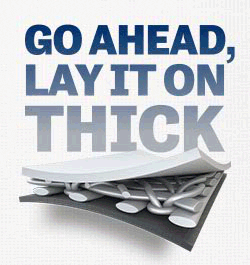
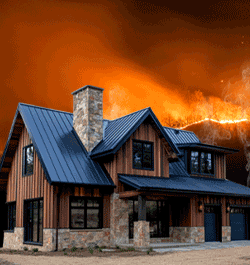











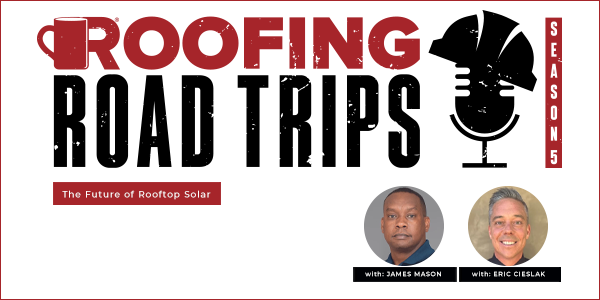
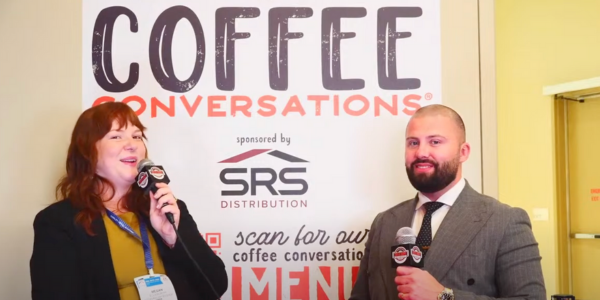
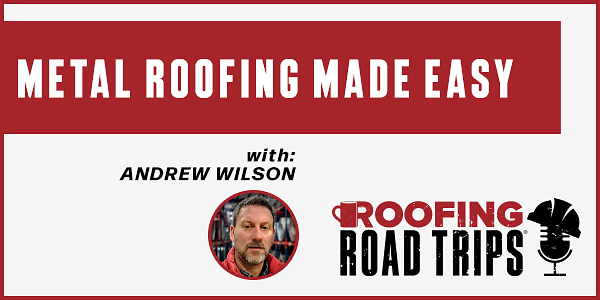
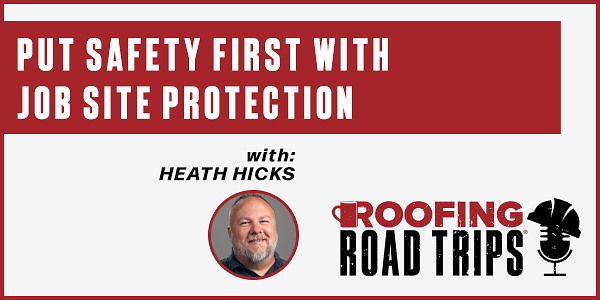

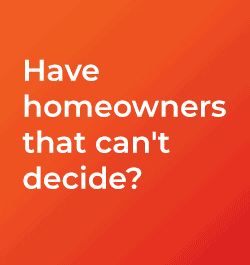
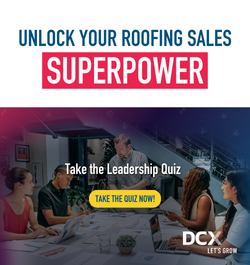

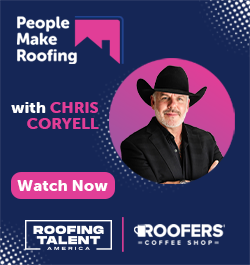

Comments
Leave a Reply
Have an account? Login to leave a comment!
Sign In